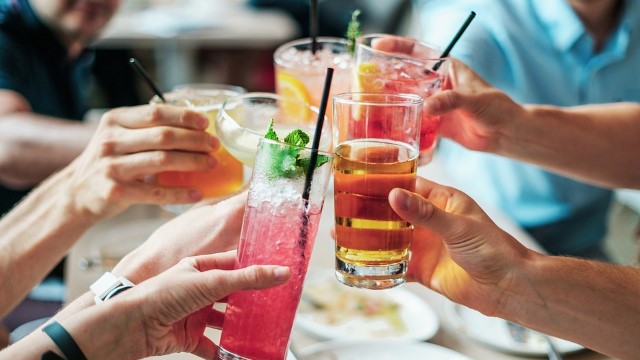We’ve always had a lot of mixed messages when it comes to alcohol. On one hand, we hear that moderate alcohol consumption has been linked to health benefits. On the other hand, it’s looked at as a highly addictive toxin that should be avoided.
The truth is that the health effects or lack thereof when it comes to alcohol is actually quite complex. And although an occasional drink can have a perfectly respectable place in a healthy lifestyle, if you exceed moderate drinking (one drink per/day for a female and two drinks per/day for a male) you may inadvertently be sabotaging your own weight loss efforts.
1. Alcohol Is Calorie Dense
Alcohol, as it stands, is purely an empty calorie commodity, meaning; it provides NO nutritional value to the body. There are 7 calories for every gram of alcohol, and each of these calories has absolutely no nutritional value. The body does not utilize these empty calories for vital metabolic processes.
2. Alcohol is Metabolized Different
When alcohol is consumed, it receives immediate attention from the body because it is viewed as a toxin. When the body is focused on processing alcohol, it is unable to properly digest carbohydrates and fats. Therefore, these otherwise useful calories are carried away and converted into body fat to be stored for future energy.
3. Alcohol Induces Thirst
Bars often serve salty foods, such as peanuts, chips and pretzels, together with alcoholic drinks. This is because salt and alcohol induce thirst, making you want to drink more. However, calories from the snacks and the alcoholic drinks only accumulate and will lead to excess weight gain.
4. Alcohol Causes Dehydration
Alcohol is a diuretic, meaning it causes water loss and dehydration. Along with this water loss the body loses important minerals, such as magnesium, potassium, calcium and zinc. These minerals are vital to energy and focus, the maintenance of fluid balance, bodily chemical reactions, and muscle contraction and relaxation. Further, dehydration can cause muscle cramping, twitching, gastrointestinal discomfort, and the all too dreaded headaches associated with overindulgence.
5. Alcohol Induces Hunger
Skipping a meal or meals in anticipation of the extra calories from alcohol is a bad idea. An empty stomach will only compound the effects of alcohol and make you eat more as your inhibitions are reduced and impulsivity increases. In this state, you are more likely to choose greasy or fried foods that will add to your waistline.
6. Alcohol Increases Inhibition
Because alcohol contains only empty calories, it does not give you the feeling of fullness that healthier beverages provide. In addition, because it affects the brain, alcohol loosens your inhibitions and reduces your willpower to resist eating more. This effect of alcohol makes it an excellent aperitif. The more you drink, the hungrier you get, and the greater the tendency to overeat.
Bottom Line:
Alcohol can easily be the enemy when it comes to weight loss. It adds extra calories to your diet, alters normal metabolic and digestive processes, and encourages you to eat more food. Not only are the extra calories a hindrance, but the changes in how foods are processed will turn those extra calories into unwanted body fat.


